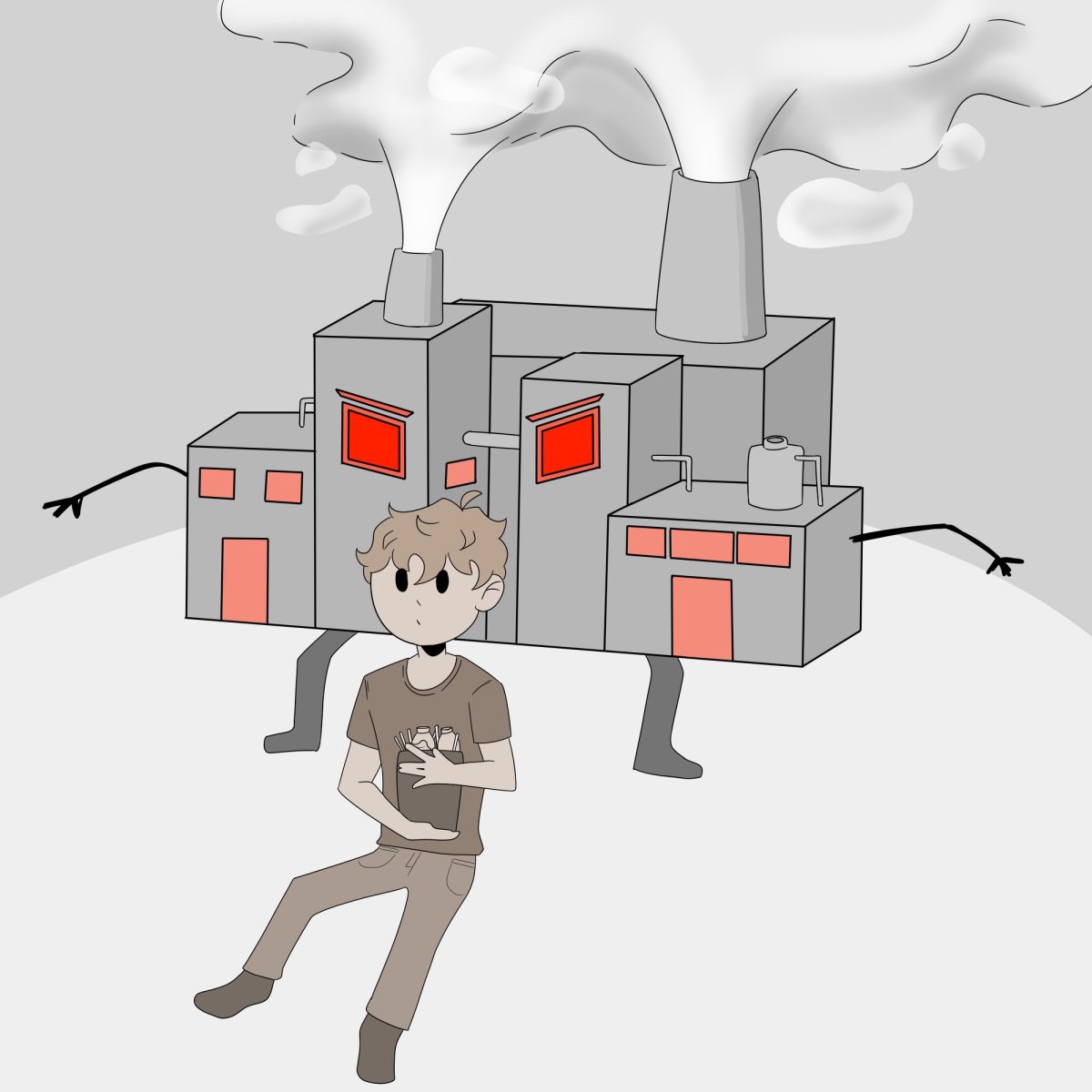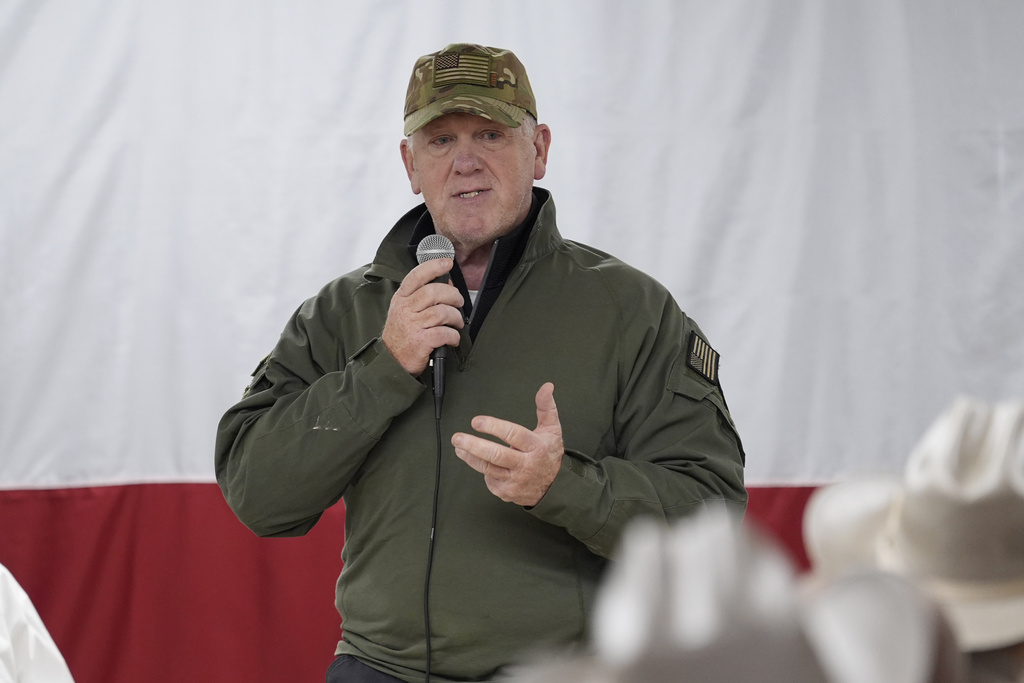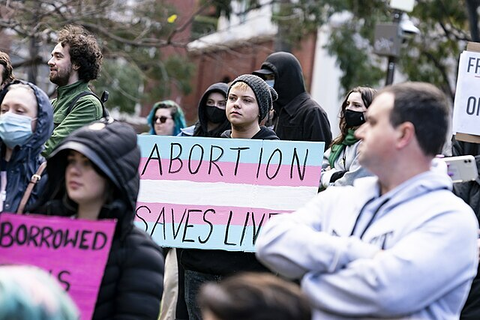Since grade school, we have been fed the belief that if we all do our part by recycling plastic bottles and taking shorter showers, we could somehow save our dying planet. While there is nothing wrong with limiting one’s carbon footprint, the overemphasis on the everyday civilian’s role in the fight against climate change is misguided.
Many Americans already have the stress of existing on their plate and do not have the means to purchase an electric car, buy all organic groceries or go zero waste.
It is time we hold those truly responsible to a standard far beyond saving a few turtles. It is time to fairly divide the work needed to heal Earth, with oil and gas corporations taking the heaviest load.
The largest problem festering on the surface of our planet is climate change – the change in average weather patterns of a region or area. These changes are largely driven by human activity, especially with our excessive burning of fossil fuels, according to NASA.
Greenhouse gases include substances such as methane, nitrous oxide, ozone and fluorinated gases that find their way into our atmosphere both naturally and through human intervention, according to the U.S. Environmental Protection Agency. The biggest contributor to our panic is carbon dioxide emissions that enter our atmosphere by human means, like burning fossil fuels and other natural materials.
Researchers at the National Oceanic and Atmospheric Association found in 2020 global temperatures had risen about 1.1 degrees Celsius since 1901. Although it may not sound alarming, we must keep in mind that even a 1.5 degrees Celsius change in temperature can increase the frequency of heat waves and other extreme weather, according to NASA.
However, climate change refers to more than just an increase in temperature.
More than just melting ice caps have been recorded. Sea levels are rising and becoming more acidic and extreme weather events are becoming more intense and frequent. More droughts, floods and heat waves aren’t just impacting ecosystems but our communities as well, in more ways than one, according to the EPA.
The biggest slice of our pie of planetary destruction is consumed by the industries of electricity, heat and transportation, as they pump approximately 22.47 billion tons of greenhouse gas emissions into our air, according to researchers at Our World in Data.
As the U.S still relies heavily on energy from burning coal, oil, and gas – all fossil fuels – we continue to supply them with our money and support.
While we should all have the well-being of our planet in mind, we should also focus on the good of the humans who inhabit it.
Thomas Skuzinski, director of the Institute for the Study of Environment, Sustainability and Energy at NIU, recognizes the need to refocus all too well and said there’s more to sustainability than meets the eye.
Skuzinski explained there are three pillars of sustainability: equity, environment and the economy.
As it is, the U.S. isn’t doing enough when it comes to keeping all three pillars in mind.
The best the federal government could accomplish was in 1990 with Title IV of the Clean Air Act Amendments to regulate sulfur dioxide emissions, according to the Environmental Protection Agency.
Some specific U.S. states have implemented their own cap and trade policies. Federal and state governments set a capacity limit on greenhouse gas emissions, for companies either in a given industry or across the economy. These companies can buy and sell their emission allowances, effectively putting a price on destroying the environment, according to the Center for Climate and Energy Solutions.
“Over the past 35 years, only about 25 companies in the world are responsible for 50% of all greenhouse gas emissions,” Skuzinski said, as backed up by research at the Carbon Disclosure Project.
Without enforcement, giant energy corporations like BP, Exxon and Shell curb their previous plans to curb their output of oil and gas. As recently as June, Shell, a popular gas station, broke its promise to cut back on oil production and invest more in green energy, as the financial output of sustainability did not meet its desired payout.
Everyday Americans shouldn’t be working so hard and sacrificing so much when these billion-dollar companies aren’t doing their part.
“If everyone became, like, the top 20% percent of Americans in the U.S. (in sustainability terms), it would only get us 7% closer to meeting our goal,” Skuzinski said.
It all feels so asinine.
States like California are finally leading the tide of change, creating a Cap-and-Trade Program that limits carbon emissions, maintains a market for trading emission credits and works on decarbonizing projects.
While these policies could be a decent start in regulating current greenhouse gas emissions, we must keep in mind that all of the laws are at the expense of the American public. The work being done is adjusted to not hurt the feelings of these multi-million dollar companies.
Skuzinski notes that while individual behavioral change is undoubtedly important, collective change is what will ultimately lead us to our goal of systematic change. Individuals should play their role in signaling corporations to change if they want to have a place in our economy.
Get informed about our planet, recycle more, drive to work, and maybe even eat less beef. But the most important and impactful action we can take is to vote. Not just at the national level, vote at every local election, every local referendum.
By casting a vote we can stop allowing politicians to continue to fund the corporations causing the environment harm. If we want to save our world, we can’t limit change to just our communities, we have to change how we protect our planet.





















